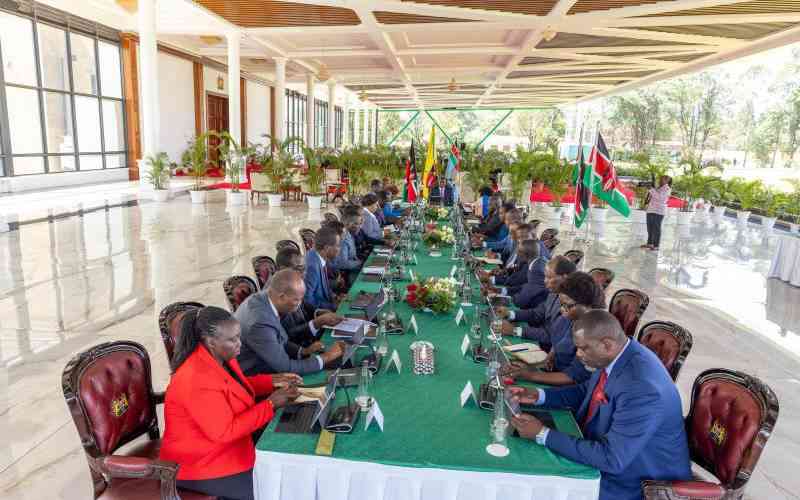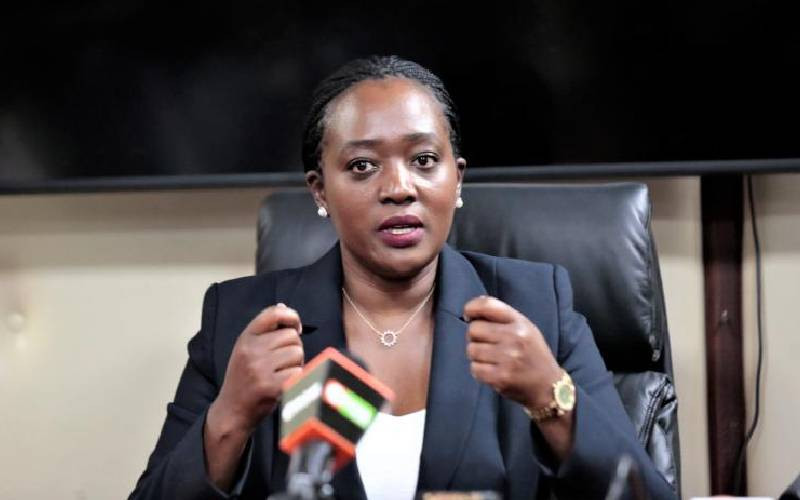President William Ruto’s Cabinet has blamed a combination of violent agitations, budget shortfalls, bureaucratic hurdles and misinformation for slowing down service delivery nearly three years into his administration.
In a dispatch released after a Cabinet and senior government retreat in Naivasha, the government pointed to what it termed as the “weaponisation of legitimate concerns”—a veiled reference to the anti-Finance Bill protests and public outcry over police brutality—as key disruptions to the government’s development agenda.
Other factors cited include geopolitical realignments, global tensions, climate shocks, and economic headwinds that have affected policy rollout and implementation timelines.
“The Retreat acknowledged the lessons learned during the first half of the 5th Administration, underlining the need to address risks constraining effective delivery of government services while exploring emerging opportunities,” read the Cabinet statement.
The Third Cabinet Retreat, which served as a mid-term performance review, brought together Cabinet Secretaries and senior members of the Executive to assess progress made and chart the course ahead.
According to the Cabinet, major structural and operational inefficiencies have all undermined performance.
This includes weak monitoring and evaluation frameworks, a siloed approach in executing projects, legal and bureaucratic bottlenecks, project indiscipline, and cybersecurity threats.
The government also cited misinformation, disinformation, and narrative wars as challenges that have hampered public trust and fueled resistance against government policies.
Despite the challenges, the Cabinet outlined what it described as key achievements under the administration’s Bottom-Up Economic Transformation Agenda (BETA).
Among them is the Affordable Housing Programme, which the dispatch claims has generated thousands of youth jobs and stimulated the construction industry through contracts awarded to micro and small enterprises.
On healthcare, the government said it has registered over 23 million Kenyans under the new Social Health Insurance Scheme, up from eight million under the now-defunct NHIF.
It also highlighted progress in training and deploying Community Health Promoters, a move aimed at strengthening preventive healthcare and easing pressure on curative services.
Stay informed. Subscribe to our newsletter
Digitization was another touted win, with the onboarding of more services on the eCitizen platform, which the government says has widened citizen access to public services, curbed corruption, reduced bureaucracy and boosted revenue collection.
In the education sector, the retreat cited milestones such as the progressive rollout of the Competency-Based Curriculum (CBC), mass recruitment of teachers, a new funding model for universities and TVETs, and the launch of the Open University of Kenya some of the wins.
At the same time, the cabinet unveiled a bold 20-point action plan aimed at reinvigorating service delivery and fast-tracking development gains in the second half of his term.
The Cabinet says the plan reflects lessons drawn from the last three years, with a renewed focus on execution, efficiency and impact.
“We have taken stock of the journey so far, acknowledged our wins, but more importantly, identified what must change to deliver fully on the promises made to Kenyans,” the dispatch reads.
Among the key commitments is the acceleration of farm produce off-take to ensure farmers earn more.
This, the Cabinet said, would help sustain gains in production, farmer incomes and rural jobs.
The team further pledged to employ more teachers in the education sector.
In addition, the government plans to build laboratories and essential facilities to raise the quality of education in all schools, and fine-tune the new university funding model to ensure fairness in placement and avoid excluding needy students.

























